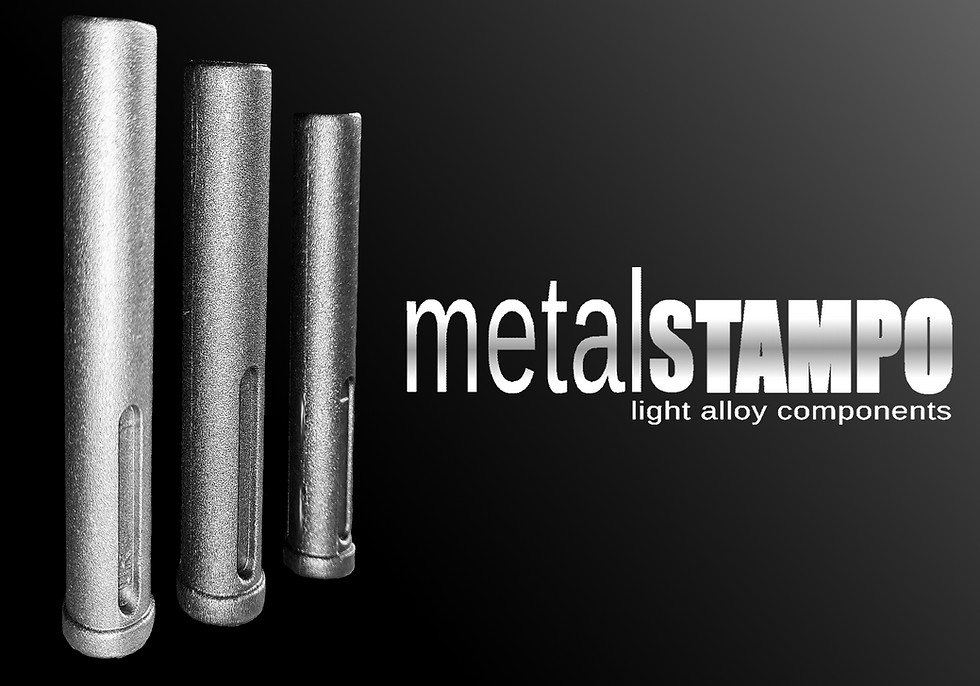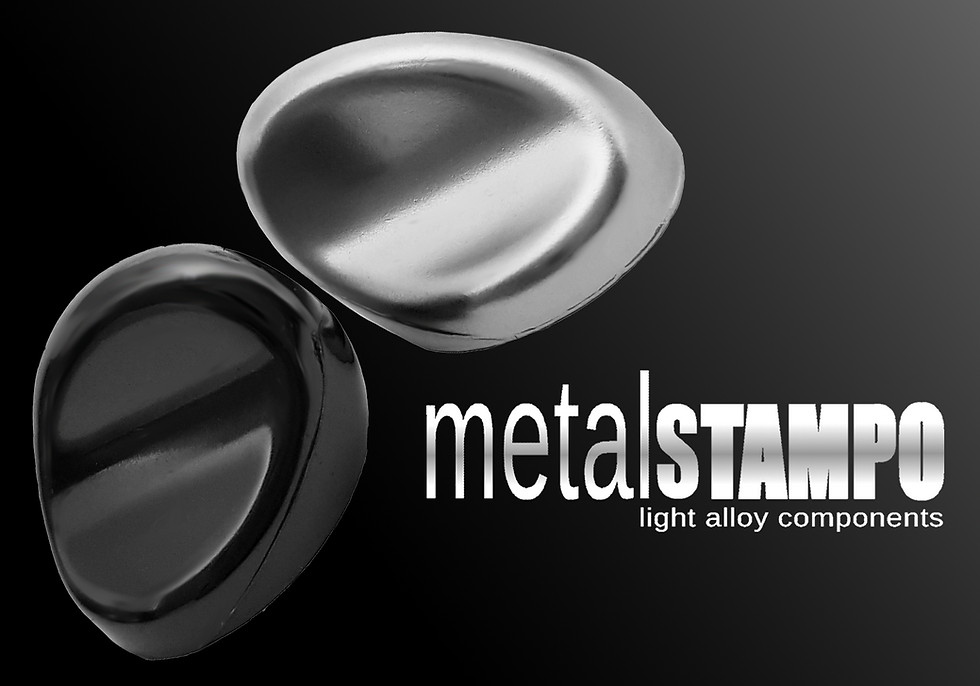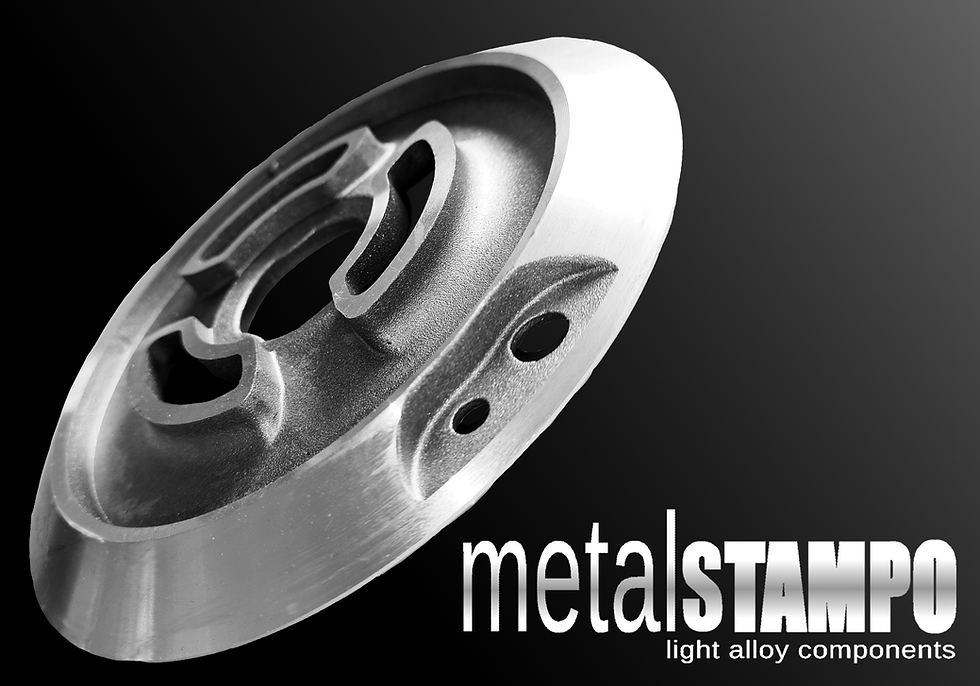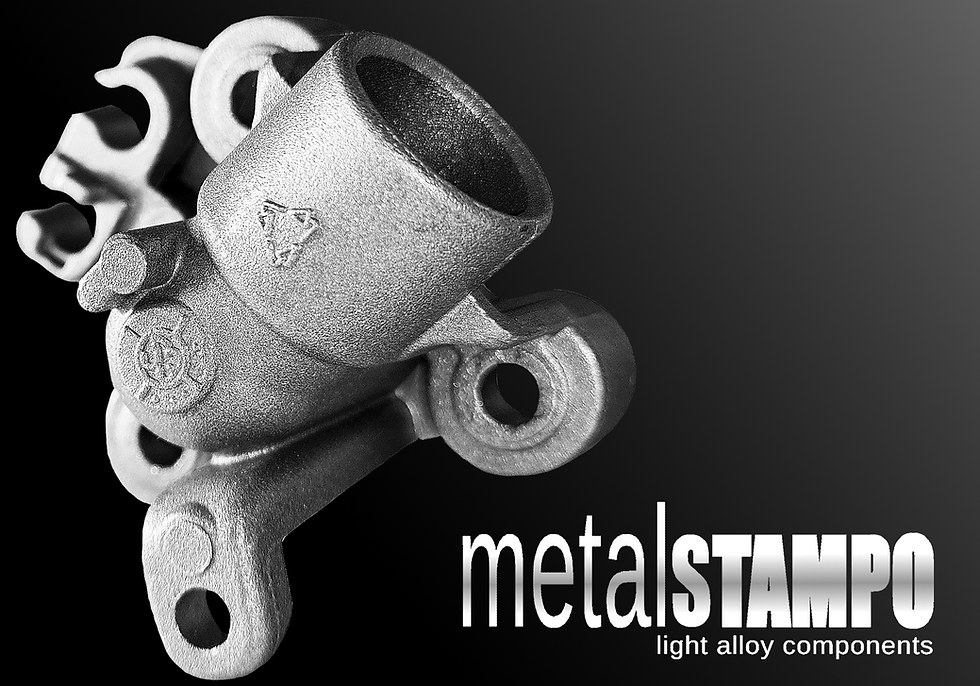Hot Chamber Presses: A Technological Insight into Zamak Processing
- metalstampo srl

- Sep 12, 2024
- 3 min read

Hot chamber presses are top-notch tools for the die casting of low-temperature alloys, such as zamak, which melts between 380°C and 420°C. This technology, with its ability to maintain the molten metal at a constant temperature, offers significant advantages, including fast production cycles and superior product quality, making it ideal for small to medium-sized components in various industrial sectors.
Operation of Hot Chamber Presses
The working principle of hot chamber presses lies in the machine's ability to keep the metal in a molten state within an integrated chamber. This approach allows for efficient and rapid injection of the metal into the mold. One of the most important features is thermal consistency, ensuring precise temperature control and eliminating variations that could affect the product’s quality.The injection process occurs through a piston system that pushes the molten metal into the mold under high pressure, ensuring even material distribution and filling even the most intricate details. The pressure is adjustable, allowing optimization of the parts' quality, reducing defects such as porosity or air bubbles.The fast production cycle is another significant advantage: since the metal is already molten, the production time is shorter than with cold chamber presses, reducing operational costs. This makes the technology perfect for large-scale production, where precision and fast turnaround are essential.
Zamak: Characteristics and Advantages of a Versatile Alloy
Zamak is an alloy primarily composed of zinc, with the addition of aluminum (about 4%), copper (1%), and magnesium (less than 1%). This combination gives zamak a set of unique properties, making it ideal for hot chamber die casting:
Low Melting Temperature: The melting temperature between 380°C and 420°C reduces energy consumption and results in less wear and tear on equipment, leading to longer machine lifespan and production cost savings.
High Fluidity: One of the distinctive features of zamak is its fluidity in the molten state. This allows for filling molds with very complex geometries, producing components with highly precise details. This property is crucial for productions requiring tight tolerances, such as in the automotive and electronics sectors.
Mechanical Strength and Hardness: Despite its low melting temperature, zamak offers excellent mechanical properties, with tensile strength and hardness that allow the creation of durable and stable parts over time. These components do not undergo significant deformation under load, ensuring high performance even in critical applications.
Corrosion Resistance: Zamak has natural corrosion resistance, making it perfect for aggressive environments or adverse climatic conditions. This property is particularly valued in industries where components need to retain their characteristics over time, such as the automotive industry or consumer electronics.
Cost-Effectiveness: The availability of zinc and the ease of processing zamak make it a highly competitive alloy economically. The efficient use of raw materials and the reduction in production time, thanks to hot chamber presses, make zamak ideal for large-scale production, lowering unit costs while offering an excellent price-performance ratio.
Applications of Zamak
Zamak’s applications are incredibly diverse. In the automotive industry, it is used to produce components such as levers, connectors, handles, and parts of locking systems. Thanks to its lightness and mechanical strength, zamak is perfect for manufacturing elements that need to maintain high precision and durability over time.In the electronics sector, zamak is used to manufacture housings for electronic devices and structural components, offering stability and wear resistance while remaining lightweight and easy to assemble. The design and furniture industries also appreciate zamak for its ability to achieve high-quality finishes, with well-defined aesthetic details and a wide range of surface treatments, from chrome plating to painting.
Metalstampo Srl, based in Albettone, specializes in zamak processing through hot chamber presses. The company has five hot chamber presses, allowing for the production of highly precise components with fast production cycles.Metalstampo stands out for its ability to customize the production process, offering clients tailored solutions for every need. Thanks to 3D control systems and advanced verification technologies, the company ensures that every part produced meets the highest quality standards.Metalstampo’s services include design, 3D prototyping, and various surface finishing options such as sandblasting, painting, and galvanic treatments. This range of solutions allows for the production of parts ready for assembly in various industrial sectors, from precision mechanics to design.Hot chamber presses, combined with the unique properties of zamak, represent an optimal solution for large-scale production that requires precision, speed, and durability. Zamak, with its high fluidity, low melting temperature, and excellent mechanical characteristics, remains a versatile and competitive choice for numerous industrial applications.Thanks to its experience and innovation, Metalstampo Srl offers complete and customized solutions in zamak die casting, ensuring quality and reliability at every stage of the production process. For more details, visit the company’s official website: Metalstampo Srl.



Comments